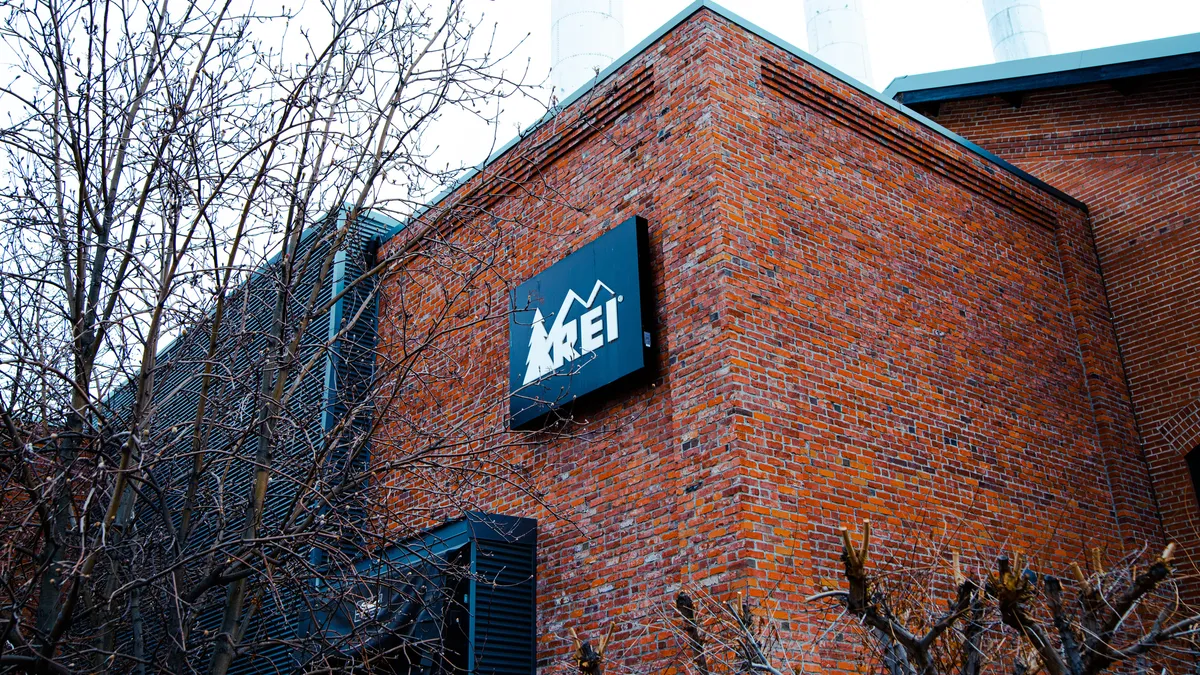Dive Brief:
-
REI reached a record $3.9 billion in sales last year, the outdoor co-op retailer said in a financial disclosure Wednesday. The company, which aims to grow to 50 million members, added 1.3 million in 2022, bringing its total count to 23 million.
-
The company swung to a $164.7 million loss, from net income of $97.7 million in 2021. Operating expense rose 22.6% to $1.8 million.
-
The retailer also closed the year by making permanent its #OptOutside policy, which entails closing on Black Friday and paying employees to enjoy the outdoors, per its press release.
Dive Insight:
As an outdoor retailer, REI was among the few in the industry benefiting from pandemic-induced consumer behaviors a few years ago, as people conducted most of their social lives outdoors. The company has sought to maintain some momentum by beefing up its membership benefits for the first time in its 84-year history, CEO Eric Artz said in a public letter.
Its benefits include exclusive gear collections, free shipping, the ability to buy and trade in used gear through its Re/Supply program, discounts on shop services and rentals, access to member sales, and an ability to earn money back from its annual Co-op Member Reward.
While the company is in the red, it remains “focused on a path back to sustainable profitability for the co-op to ensure a healthy long-term future,” Artz said.
REI in recent months has struggled to square its progressive reputation with what union organizers at some stores have said are anti-union tactics. Several stores have either unionized or are working on it. In his letter, Artz didn’t mention those efforts, but said the company has worked to improve pay and conditions for its employees.
The company invested $50 million toward pay raises for hourly employees and another $92 million toward employee retirement and bonuses, which Artz said is “the largest single-year investment the co-op has ever made in employee compensation.” The company also changed its benefits offering to provide medical coverage regardless of how many hours an employee works.
Citing REI’s 2022 engagement survey, Artz said that more than 81% of employees report “feeling like their leaders take a genuine interest in their humanity and well-being, with 78% of Black, Indigenous and people of color reporting feeling a sense of belonging.” The company increased its BIPOC employee representation to 25.9% last year, and introduced anti-bias training in hiring, he said.
In its materials released Wednesday, REI also noted its environmental advocacy. Through its Cooperative Action Network, the company sent more than 250,000 messages to decision-makers at state and national levels. Along with pushing for progress on climate change, the retailer itself achieved its third straight year of climate neutrality in its operations, and the 10th straight year of being powered by 100% renewable electricity.
The company partnered with 39 founders, provided $2.7 million in grants and investment and created a network of more than 250 speakers, mentors, advisers and investors through its REI Path Ahead Ventures incubator for founders of color in the outdoor industry. And it made $6.9 million in contributions to 503 nonprofits working toward a more inclusive outdoor community, Artz said.













